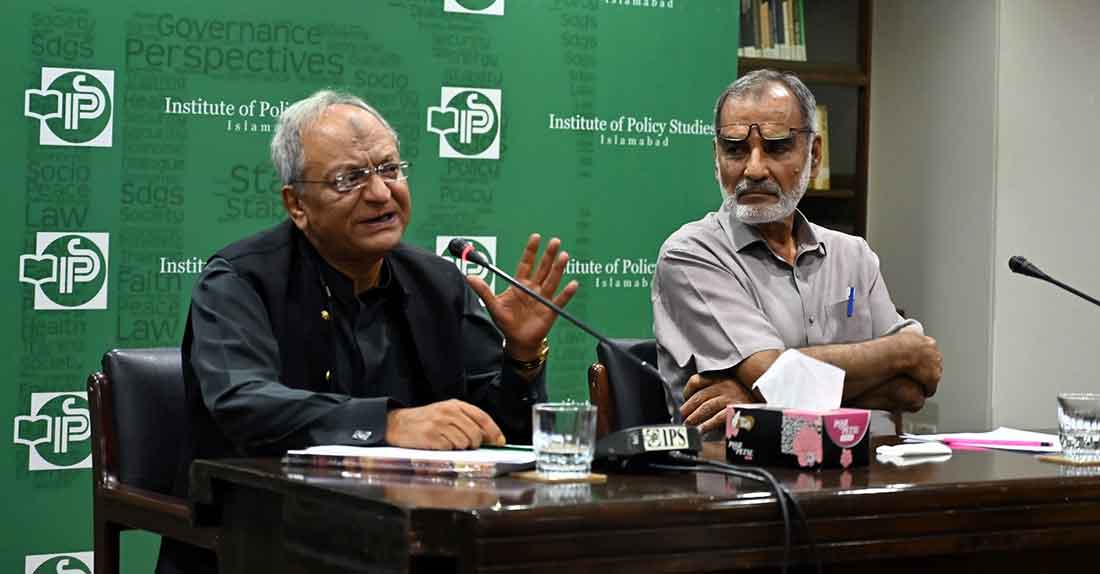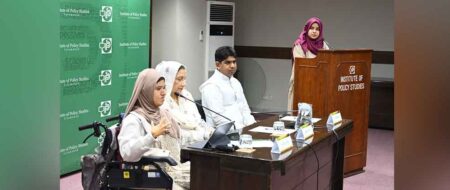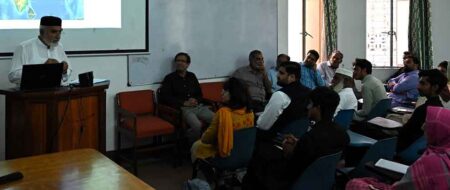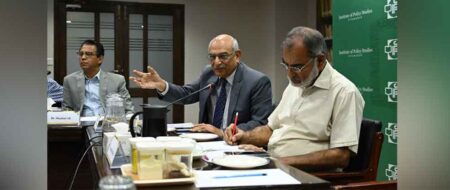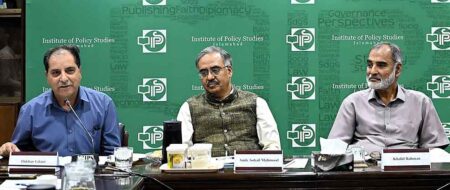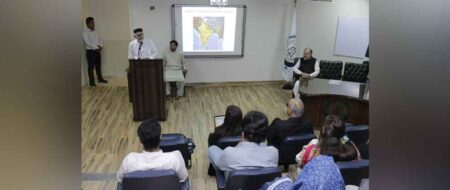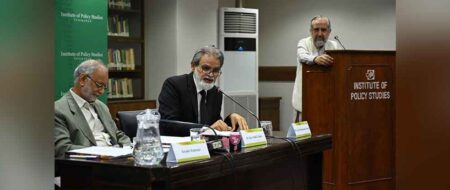‘Pakistan-India Interaction: Ancient and Contemporary Perspective’
Cultural legacies still shape the diplomatic and strategic realities of Pakistan-India relations
The enduring and distinct cultural identities and traditions of Pakistan and India continue to shape their political realities even decades after partition. These historical identities remain influential in their diplomatic discourse and strategic interests in South Asia.
This was discussed by Ambassador (r) Afrasiab Mehdi Hashmi Qureshi, who has also served as additional foreign secretary, during his guest lecture on ‘Pakistan-India Interaction: Ancient and Contemporary Perspective’, held at the Institute of Policy Studies (IPS), Islamabad, on October 9, 2024. The event drew a diverse audience, including students from various universities, who gathered to gain deeper insights into Pakistan and India’s complex history and evolving dynamics.
Ambassador Afrasiab, who has served as Pakistan’s high commissioner to Bangladesh and New Zealand and held key diplomatic positions in Washington DC, New Delhi, Beijing, and Vienna, shared his experiences and provided an in-depth analysis of the longstanding and multifaceted relationship between the South Asian neighbors. He explored the ancient cultural ties and divergent historical paths that have shaped their contemporary political realities.
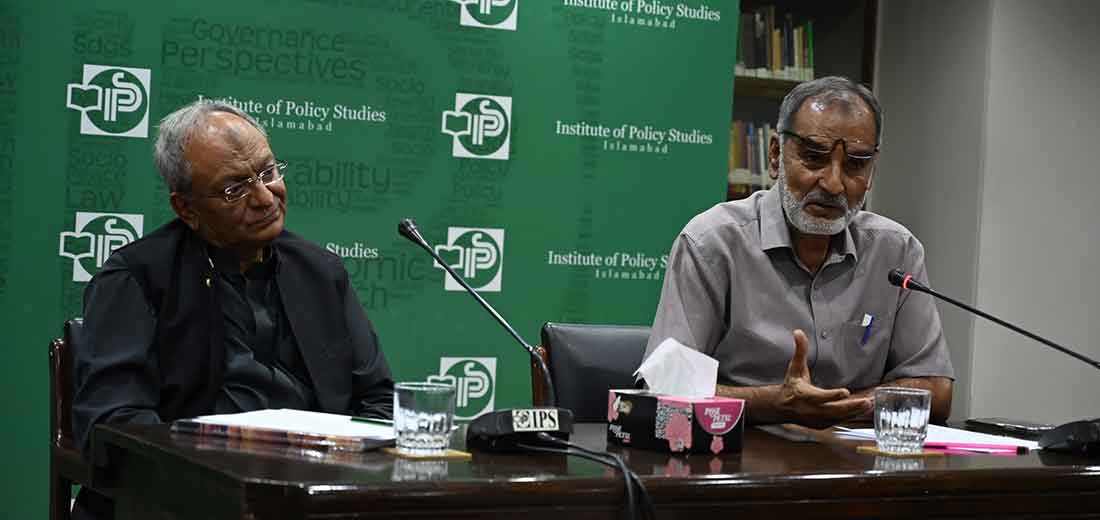
The former high commissioner emphasized that the roots of Pakistan-India interaction extend far beyond the partition of 1947, going back thousands of years. He pointed out that while the regions of present-day Pakistan and India have been geographically interconnected, they have always maintained distinct cultural, religious, and philosophical identities. These differences have not diminished with the establishment of political boundaries and continue to impact the relationship, which is often characterized by tension and cautious cooperation.
Addressing the contemporary dynamics, he noted that India’s references to its historical and cultural connections with the region now known as Pakistan play a role in shaping its current diplomatic stance and strategic policies. Despite the emergence of modern political boundaries, the deep-rooted cultural narratives are still invoked in framing national interests and foreign policy.
Sharing his impressions, IPS Chairman Khalid Rahman emphasized the significance of understanding the broader context of historical narratives, particularly the Two-Nation Theory, which underpinned the political developments of South Asia. He noted that while present narratives can be distorted to challenge historical realities, it is essential to consider the nation’s history comprehensively.
The discussion provided a nuanced perspective on the cultural and historical factors shaping the present-day relationship between Pakistan and India, highlighting the need for a deeper understanding of their shared yet distinct histories.
The lecture concluded with an engaging question-and-answer session, where students discussed various historical and contemporary aspects of the Pakistan-India relationship with Ambassador Afrasiab.
